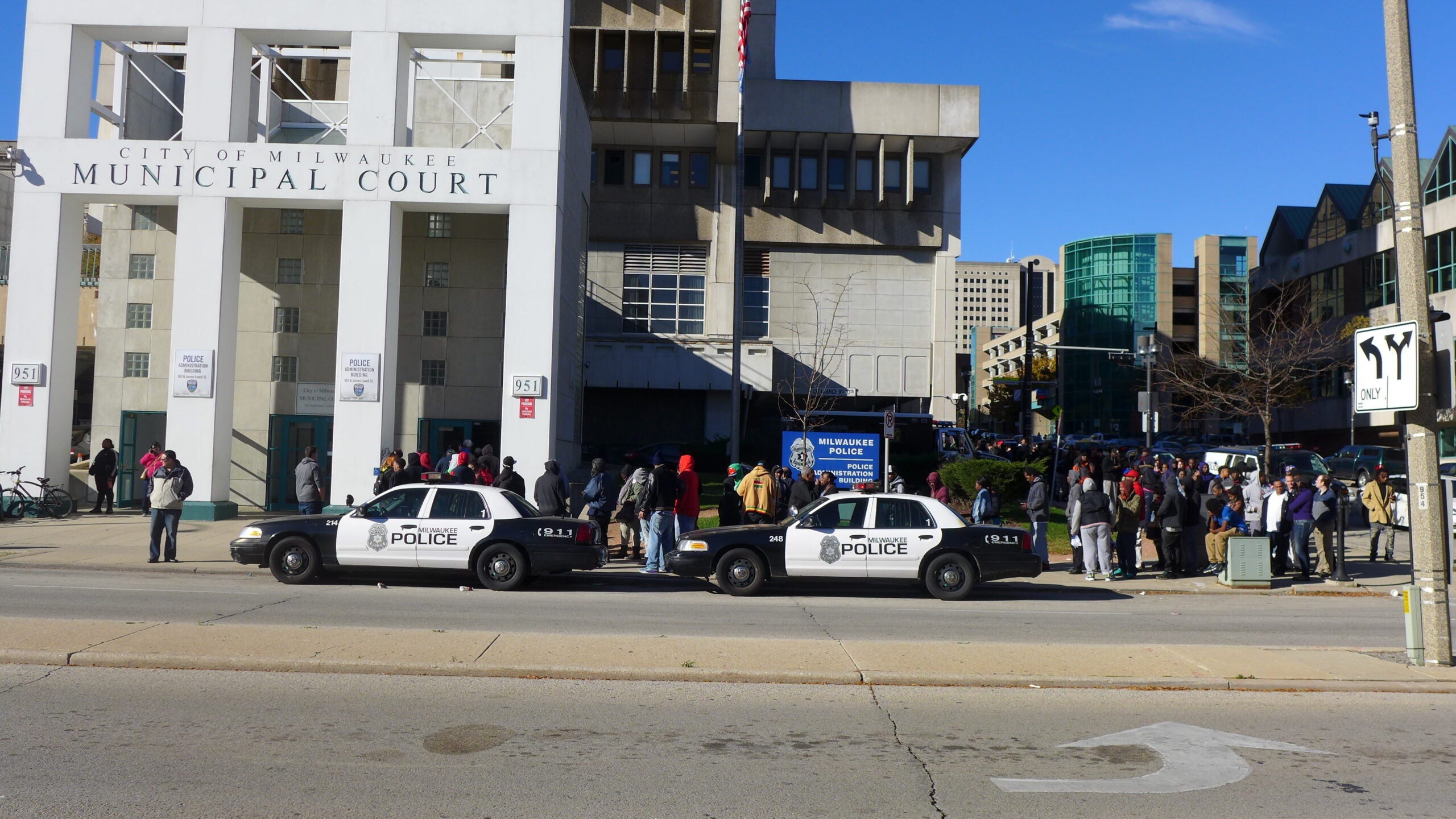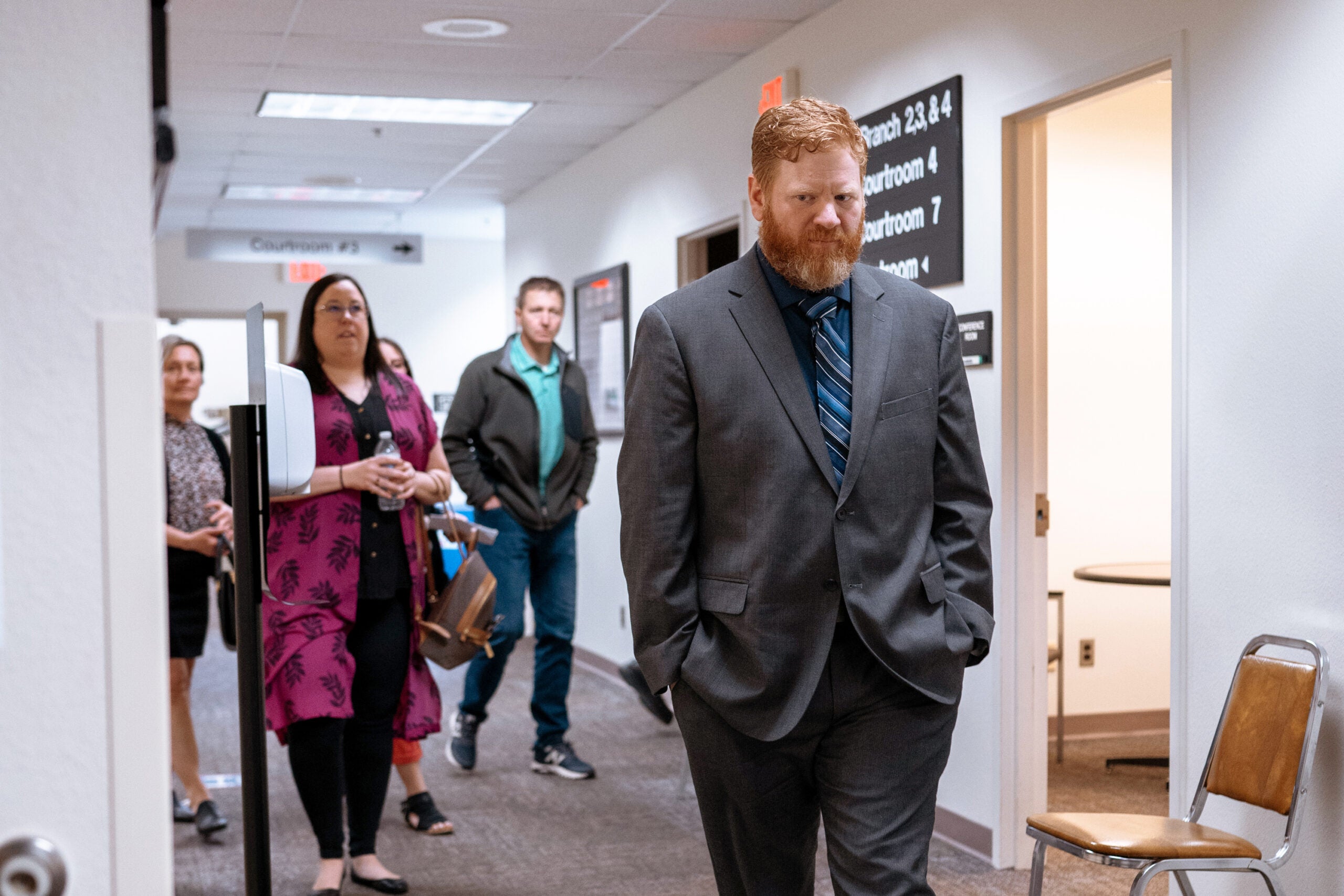Milwaukee resident Victoria Porter had her driver’s license suspended after she failed to pay a ticket for her tail light being out.
Lacking a driver’s license, Porter faced added stress in her everyday life she was anxious to shed.
“It causes me, in my own mind, to be nervous,” she said. “Like I’m going to get in trouble because I don’t have my license together. And I’m responsible for that. I know I should’ve paid my tickets, but I’m building my business, so if I didn’t have the funds for that, this is a good opportunity for me to come and clear myself up.”
Stay informed on the latest news
Sign up for WPR’s email newsletter.
On Nov. 9, the second Warrant Withdrawal Wednesday of the month, hundreds of people waited in line outside the City of Milwaukee Municipal Courthouse for the chance to finally rid warrants from their record. Porter was one of them.
As she waited outside the courthouse to see a judge, Porter said she is grateful for the initiative created by three Milwaukee County judges that lets her move on with her life and is glad so many people are taking advantage of it.
“I’m proud of this ’cause it shows me that people ain’t trying to be out here,” Porter said. “We aren’t trying to be illegal or criminals or whatever the labels they want to give us. We just want to be right and get on with our lives.”
Three city of Milwaukee judges gave people a chance to right their wrongs and get their lives back on track on the first three Wednesdays in November during the Warrant Withdrawal Wednesday initiative.
The initial plan was to give Milwaukee County residents a chance to have any warrants lifted or turn themselves in for more serious offenses without being arrested, but that plan became too complicated, the judges said. Instead, the three judges decided to lift warrants for traffic violations and end driver’s license suspensions for city residents.
Milwaukee Municipal Judge Phillip Chavez helped start the initiative he said gives the court a chance to get to know the person behind the warrant or suspension.
“That’s been a problem,” Chavez said. “Once they receive a citation or a violation, they don’t come out. We don’t know your situation at that point. It’s just a name in the system. Now, at an event like this, we can get actually get them into court. We can see them and discuss their options.”
Clearing the warrants didn’t come without a commitment, however.
Participants had to pay a $20 fee to dissolve a warrant that day in court. On these Wednesdays, people were also given the option to have a 90-day extension to pay the fine associated with their citation or violation. If a participant couldn’t afford to pay the fine or citation fee in court or through a payment plan, participants could elect to perform community service, or enter a drug treatment, mental health or job search program.
Warrants can also affect community relations with law enforcement, and the impact of these warrants stretches beyond an individual’s financial situation, said Molly Collins, the associate director of the ACLU of Wisconsin.
“People are obviously going to be less likely to call the police if they need help if they have a warrant,” Collins said. “They will also be less likely to report some other sort of crime in their neighborhood if they have a bunch of tickets or an outstanding warrant.”
Milwaukee Municipal Judge Valerie Hill helped start the effort with the mindset that it could help people gain employment and said she can only hope this helps improve police-community relations.
“That’s part of the reason we wanted to do it is because we wanted to take away some of the barriers that are there for employment,” Hill said. “Warrants are also some of the reasons that people make bad decisions when it comes to police interaction. So, we tried to do our part in lifting some of the barriers for people.”
Based off the success of the more than 7,000 lifted warrants and licenses reinstated over the Wednesdays, the judges hope to do initiatives like this again, Hill said.
“This has been months in the making,” Hill said in November, “because it takes a little bit of time to get three judges calendars cleared off so that you can do something of this magnitude.”
Wisconsin Public Radio, © Copyright 2025, Board of Regents of the University of Wisconsin System and Wisconsin Educational Communications Board.







